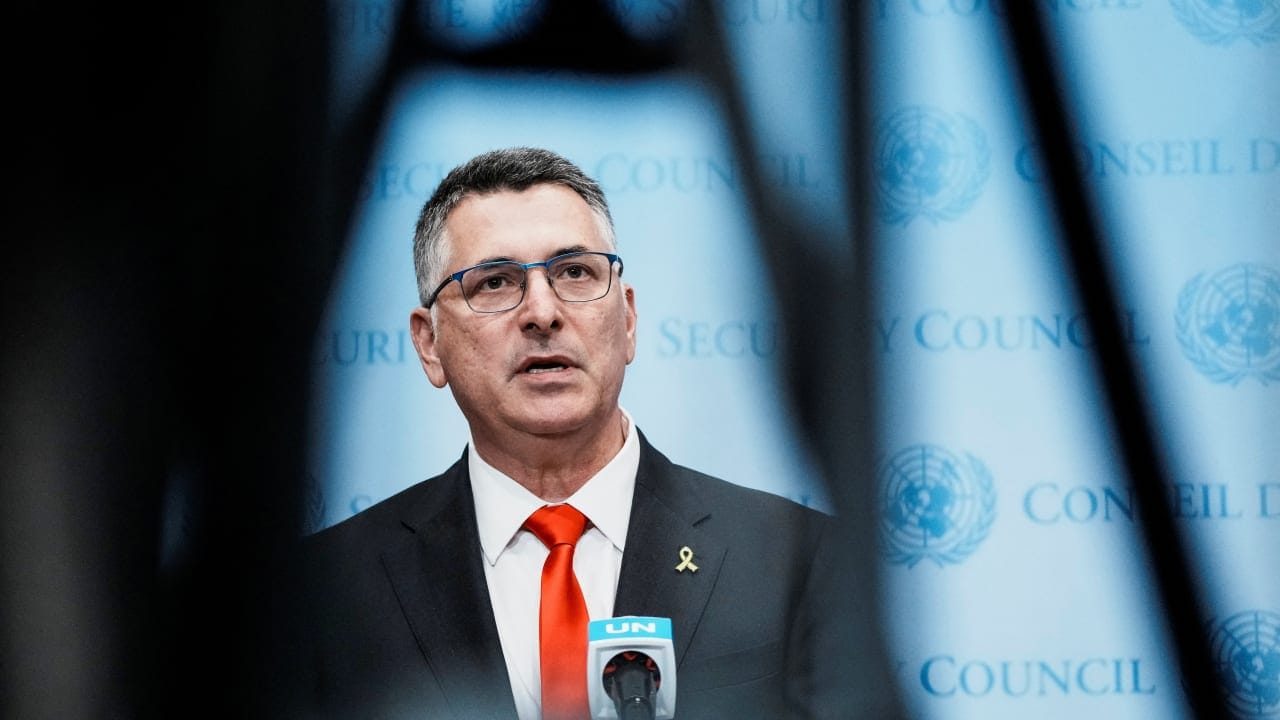A Bold Statement at the United Nations
Foreign Minister Gideon Sa’ar took a decisive step in addressing the international community, echoing calls from many within Israel for a more assertive stance. His speech to the United Nations Security Council was a direct response to recent events that have placed Israel under intense scrutiny. The meeting, arranged with support from the United States and Panama, came after distressing videos surfaced showing hostages in dire conditions.
Sa’ar’s address was not only a moment of speaking out but also an attempt to shift the global narrative surrounding the conflict. He emphasized the need for clarity and moral responsibility, highlighting the atrocities committed by Hamas and the suffering of Israeli hostages. This move marked a significant departure from previous diplomatic strategies, which often focused on defending Israel’s actions rather than confronting the enemy directly.
A Moral Stand Against Misinformation
The timing of Sa’ar’s speech was strategic, as Israel faces mounting pressure on the global stage. With numerous countries recognizing a Palestinian state and media coverage often skewed, the challenge of reclaiming the narrative is immense. Sa’ar’s message was clear: Hamas should be seen as the aggressor, not Israel.
He recounted the brutal attacks of October 7, describing them as crimes akin to those committed by extremist groups like ISIS. By emphasizing the suffering of hostages and the deliberate starvation tactics used by Hamas, Sa’ar aimed to draw attention to the human cost of the conflict. However, despite the strength of his arguments, the impact of his speech has been limited, reflecting the entrenched biases within the international community.
The Silence of the International Community
Sa’ar pointed out the silence from key figures and institutions, including the United Nations Secretary-General and major media outlets. He criticized the lack of attention given to the plight of Israeli hostages, noting that even prominent publications failed to highlight their stories adequately. This silence, he argued, contributes to a distorted perception of the conflict, where the victims are overlooked in favor of narratives that favor the aggressor.
His speech also addressed the broader implications of this silence, suggesting that it enables Hamas to continue its propaganda efforts without consequence. By framing the issue as a moral inversion, Sa’ar called for accountability not just from Hamas, but from the international community that has allowed such actions to persist.
Shifting the Narrative
In contrast to previous approaches, Sa’ar’s strategy focused on exposing Hamas’s tactics rather than defending Israel’s military actions. He highlighted the stark differences between the well-fed terrorists and the starving hostages, illustrating a calculated propaganda strategy designed to manipulate public opinion. This approach aimed to shift the conversation from abstract discussions of proportionality to a more direct confrontation with the realities of the conflict.
By calling for accountability and emphasizing the need for moral clarity, Sa’ar challenged the prevailing narrative that often blames Israel for the suffering in Gaza. His message was a call to action, urging the international community to recognize the true source of the conflict and to hold Hamas accountable for its actions.
The Challenge of Moral Clarity
Despite the strength of Sa’ar’s arguments, the reality remains that moral clarity alone may not be enough to change perceptions. In a world where preconceived notions are deeply ingrained, even the most compelling evidence can be overlooked. The challenge lies not only in presenting the truth but in ensuring it is heard and understood.
Sa’ar’s speech was a significant step forward, but it also highlighted the complexities of navigating the global media landscape. As Israel continues to face criticism, the need for a more aggressive and assertive approach becomes increasingly apparent. While the path to changing the narrative is fraught with challenges, the importance of speaking out cannot be overstated.
Ultimately, the goal is to ensure that the voices of the victims are not silenced and that the international community recognizes the urgent need for accountability and justice. As the conflict continues, the importance of moral clarity and unwavering conviction in the face of adversity will remain critical.

